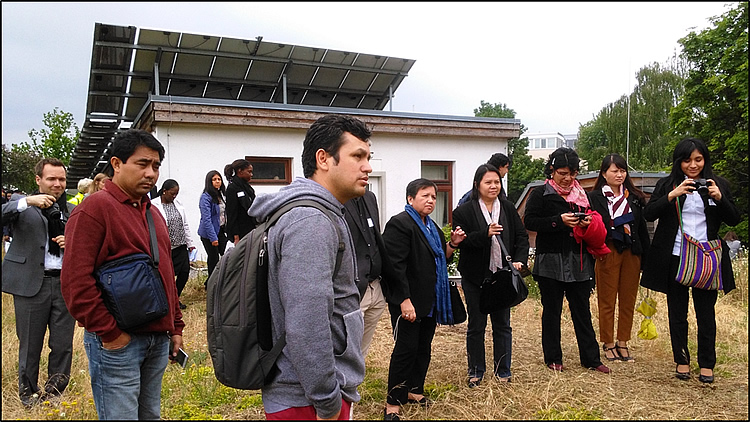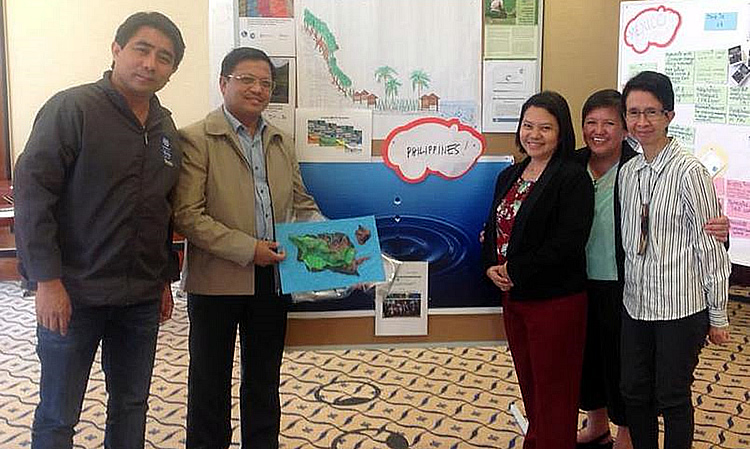The launching of this global CoP was spearheaded by the Deutsche Gesellschaft für Internationale Zusammenarbeit (GIZ) GmbHon behalf of the German Federal Ministry for the Environment, Nature Conservation, Building, and Nuclear Safety (BMUB). Other international organizations that participated in the launching include: Conservation International (CI), United Nations Environment Programme- World Conservation Monitoring Centre (UNEP-WCMC), International Institute for Environment and Development (IIED), International Institute for Sustainable Development (IISD), Wetlands International (WI), World Resources Institute (WRI), International Union for Conservation of Nature (IUCN), and Food and Agriculture Organization (FAO).
The entry points, tools and methods, and evidences for EbA adopted by the CoP were a product of a four day workshop from 12-16 June 2016. It was followed by two training programs on Monitoring and Evaluation of Adaptation, and Ecosystem Services Assessment and Valuation on 17 June 2016.
The delegation from the Philipines shared experiences on various programs covering ridge to reef approach, sectoral vulnerability and risk assessment, natural resources accounting and valuation, greenhouse gas (GHG) inventory, and mainstreaming climate resilience and green growth planning, all relevant to EbA.
The delegates from the Philippines were Mr. Alexis Lapiz, Eco-town Program Officer of the Climate Change Commission (CCC); Ms. Elizabeth Bandojo, Environmental Planner/GIS Specialist of the Housing and Land Use Regulatory Board (HLURB) - Southern Tagalog Region; Ms. Dolores Nuevas, Senior Advisor of GIZ-Philippines; and Ms. Ma. Gerarda Asuncion D. Merilo, Climate Change Office at the Environmental Management Bureau, Department of Environment and Natural Resources. SEARCA was represented by Dr. Lope B. Santos III, Program Specialist of the Project Development and Technical Services (PDTS).

